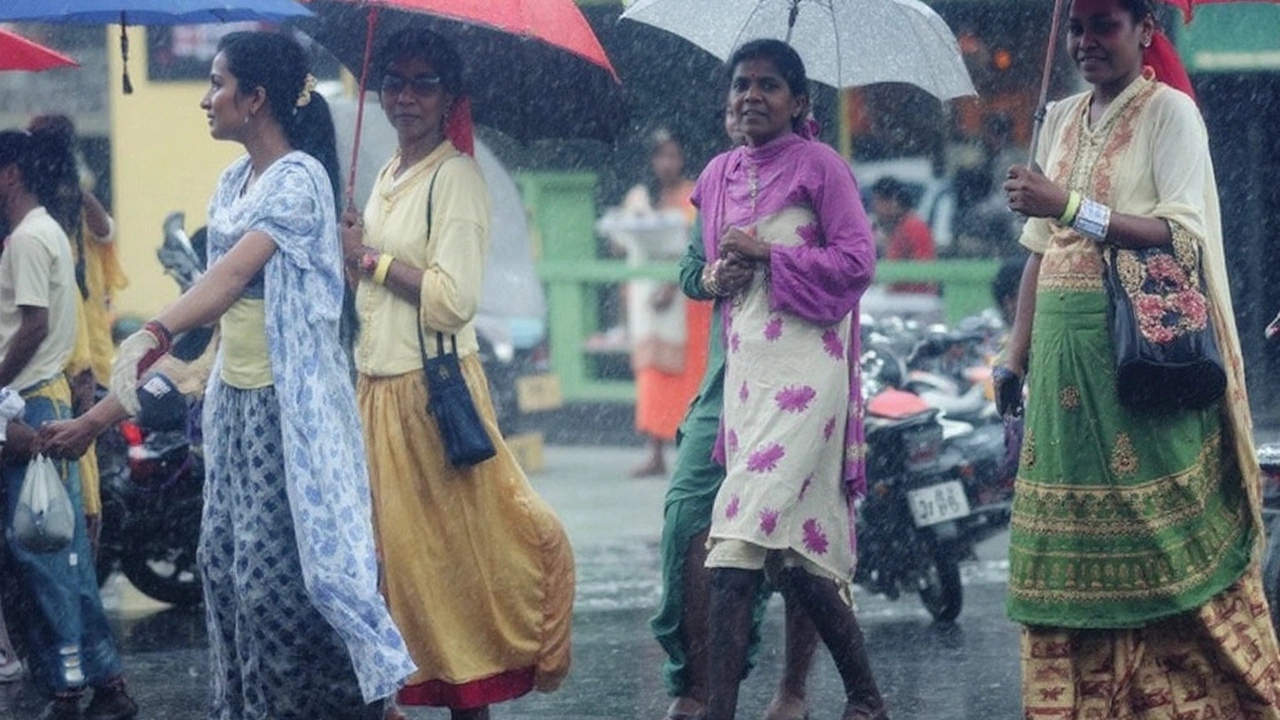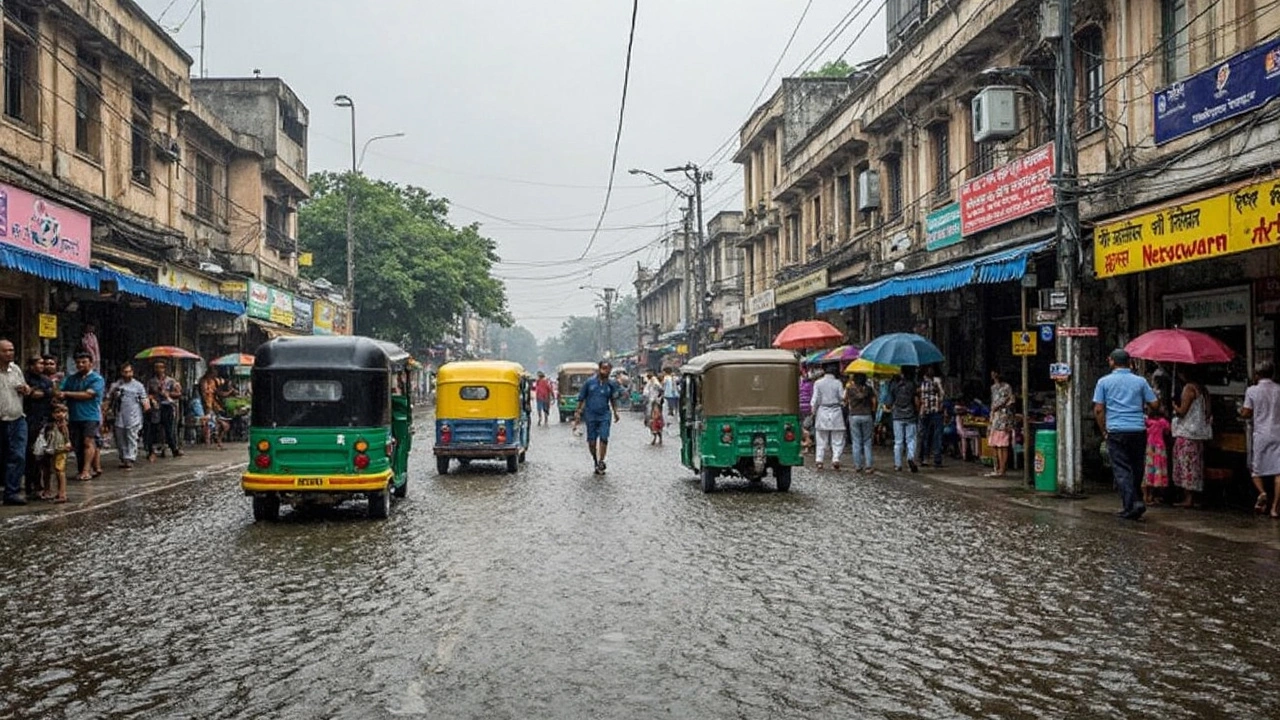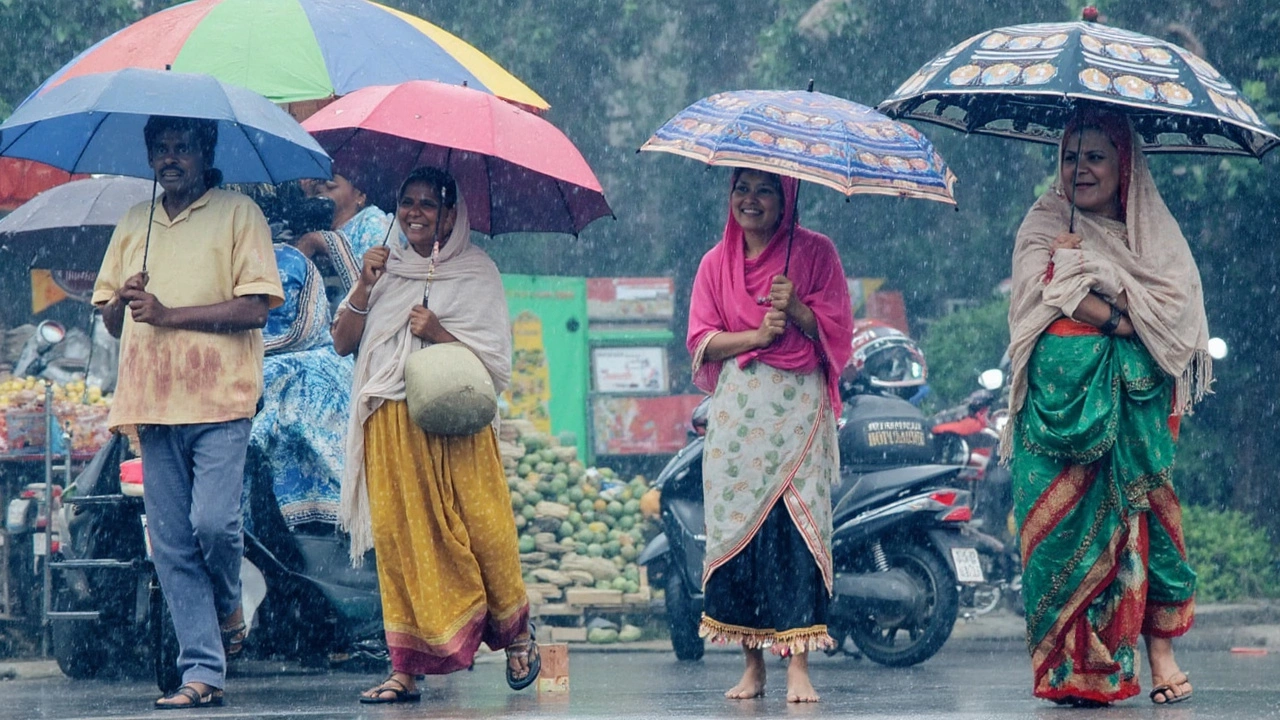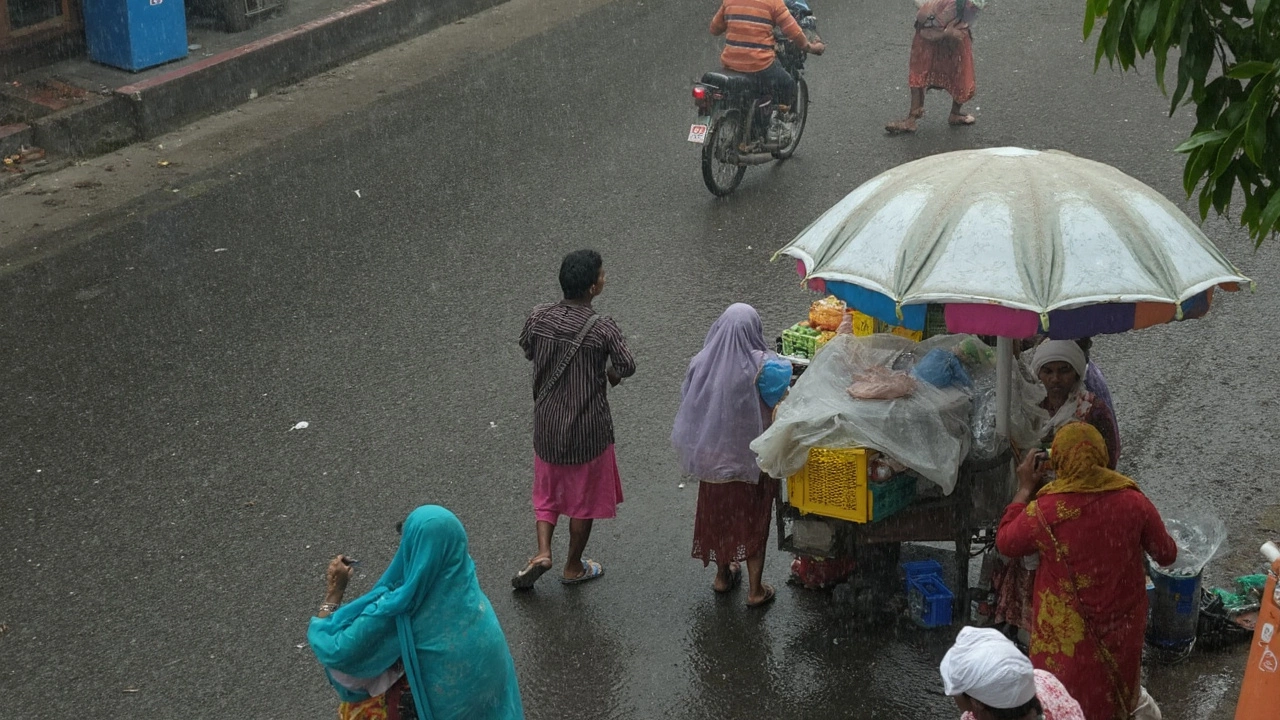Heavy Rainfall Updates & Safety Guide for India
Heavy rain has been hitting large parts of India this month, and the impact is hard to miss. From Delhi’s water‑logged streets to Bihar’s swollen rivers, the monsoon is showing its strongest side. The India Meteorological Department (IMD) has issued several red and yellow alerts, warning residents to stay alert. In this guide we’ll break down the most recent flood events, explain why they matter, and give you simple steps to stay safe.
Recent Flood Events Across the Country
Delhi‑NCR saw relentless downpours that pushed the Yamuna to 207.44 metres, just shy of its 1978 peak. The surge caused flight delays at IGI Airport, road closures on the Outer Ring Road, and even a temporary pause in cremations at Nigambodh Ghat. The IMD downgraded the alert to yellow, but rain is expected to linger until at least September 7.
North India faced a red alert as well. Punjab experienced its worst floods since 1988, while Haryana‑Delhi border colonies were evacuated after a drain breach. A low‑pressure system over the Bay of Bengal is feeding the downpour, and experts say September rainfall could exceed the long‑period average.
In the east, Uttarakhand’s Chamoli district reported a cloudburst in Tharali, prompting a 24‑hour IMD warning for very heavy rain. The warning highlighted landslide and flash‑flood risks from Dehradun down to Bageshwar. Meanwhile, Jammu & Kashmir is bracing for above‑average September rain, with flash‑flood and landslide alerts already in place.
Bihar’s situation remains critical. Over 25 lakh people across ten districts are coping with rising Ganga levels, breached embankments, and village evacuations. The state government has deployed NDRF teams, boats, and community kitchens to help those affected.
How to Stay Safe During Heavy Rainfall
First, keep your phone charged and follow official IMD updates. Alerts are usually posted on news sites, radio, and government channels. If you hear a red alert, avoid low‑lying areas and postpone travel whenever possible.
Second, prepare an emergency kit. Include bottled water, non‑perishable food, a flashlight, basic medicines, and important documents in a waterproof bag. A small tarp or plastic sheet can help protect your belongings if you need to evacuate quickly.
Third, secure your home. Check that windows and doors close tightly, clear gutters and drains of debris, and move valuable items to higher ground. If you live in a flood‑prone zone, consider moving furniture and appliances to the upper floor.
Fourth, stay away from water that looks dirty or moves fast. Even shallow water can knock you down or hide dangerous currents. If you must drive, remember that standing water can hide potholes and cause your vehicle to stall.
Lastly, look out for your neighbors, especially the elderly and those with disabilities. A quick check‑in can make a big difference when help is hard to reach.
Heavy rainfall won’t stop soon, but staying informed and prepared can reduce the risk to you and your family. Keep an eye on IMIM alerts, follow the safety tips above, and you’ll be ready to face the monsoon head‑on.

Ranchi and several Jharkhand districts are under an orange alert for heavy rainfall starting August 20, as a low-pressure system from the Bay of Bengal moves in. Thunderstorms, strong winds, and delays in transportation are expected, especially in areas under yellow alert. Residents are urged to stay cautious.

Madhya Pradesh is set for a turbulent week as the IMD issues orange and yellow alerts for central and eastern districts due to imminent heavy rains. Residents face the risk of floods, storms, and traffic disruption, with authorities urging precaution. Rainfall is forecast to ease after July 12.

Monsoon arrived in Uttar Pradesh on June 18, triggering orange alerts in 39 districts as the IMD predicts very heavy rainfall between June 19-21. Thunderstorms and lightning are expected, prompting advisories for building safety. Authorities are preparing for potential emergencies as the monsoon spreads across the state.

The IMD has forecast thunderstorms and heavy rainfall across Uttar Pradesh and adjoining states from 15th-21st June, signaling relief from scorching heat. The alert also covers regions like Bihar and Uttarakhand, warning residents and fishermen to prepare for intense weather shifts.

Uttar Pradesh braces for thunderstorms and heavy rainfall from 27 May to 2 June as IMD warns of gusty winds reaching up to 70 kmph in some western regions. Weather systems tied to cyclonic circulations and a trough will impact surrounding states. Temperature and humidity levels are also expected to fluctuate.




